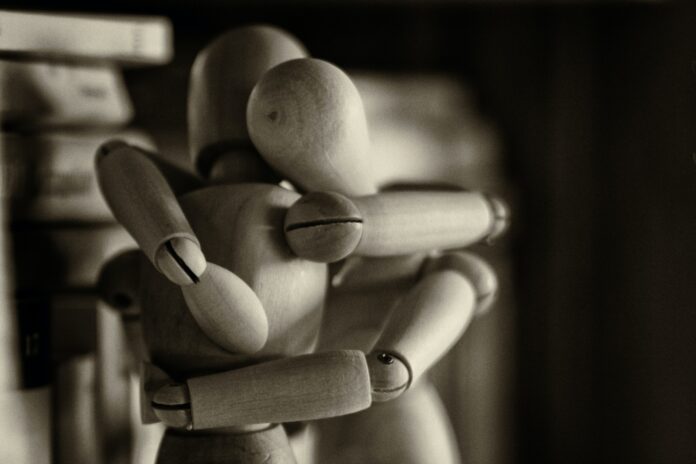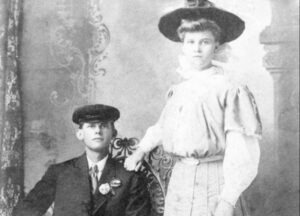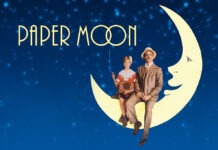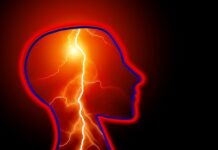I was deeply affected by last week’s memorial piece about a boy I never had the pleasure of knowing or meeting, Ben Segard. I found a common thread among what his friends and family were saying about him. The majority of the loving memorial tributes mentioned that “Ben gave the best hugs.” Reading that message over and over sparked a memory of learning some very important information in grad school, in my intro to cardiopulmonary class.
The Canadian professor opened class with a question: Why does the heart symbolize emotion when it is “just an organ?” Everyone was stumped. No one was going to answer even if they thought they knew, so as we patiently waited, I instinctively put my hand over my heart to feel its presence, and that’s when the professor interrupted my thoughts and said, “What you’re aboot (that’s not a typo, that’s how he said it and spelled it) to learn is that although the heart is indeed a mechanical pump, it also possesses the power to heal others and change lives.”
The Heart’s Energy Range and Healing Powers
Emerging studies in the field of bioenergetics suggest that the human body is not just composed of physical matter, but also subtle energy fields. The heart is believed to have an electromagnetic field that extends several feet beyond the body. This field, referred to as the heart’s energy range, is thought to be influenced by emotional states, interactions and intentions.
Dr. Rollin McCraty, director of research at the HeartMath Institute, explains that the heart’s electromagnetic field can transmit information to others and affect their emotional state. This concept aligns with the idea that a hug has the potential to transmit positive energy and emotions from one person to another, resulting in a sense of comfort and well-being.
The Heart’s Role in Emotions
Throughout history, the heart has been symbolically linked to human emotions. This connection is not merely metaphorical – it has a scientific basis. The autonomic nervous system, responsible for regulating bodily functions outside conscious control, is influenced by emotional experiences. The heart, a key player in this system, responds to emotions by adjusting its rhythm and producing different patterns of electromagnetic activity. These changes can be detected and measured through techniques like electrocardiography (ECG).
When someone offers a heartfelt hug, it can synchronize the heart rates of both individuals, creating a phenomenon known as “heart coherence.” This state of coherence is characterized by increased synchronization between physiological systems and is associated with reduced stress, improved mood and enhanced emotional well-being.
The Variability of Hug Sensations
Why do some hugs leave us feeling more uplifted than others? Research points to the concept of emotional resonance. When two individuals share a close emotional bond, their heart rhythms are more likely to synchronize during a hug. This synchronization is influenced by factors such as empathy, trust and the depth of the relationship. Hugs that are genuine, warm and accompanied by positive intentions tend to evoke a stronger sense of emotional resonance, resulting in a more pronounced therapeutic effect.
Quantifying the Benefits: Statistics and Findings
Studies have shown that hugging has tangible benefits for both physical and mental health. According to research conducted by the University of North Carolina, Chapel Hill, hugs increase oxytocin levels, often referred to as the “bonding hormone” or “love hormone.” Oxytocin is associated with feelings of trust, social connection and reduced stress. Another study published in Psychological Science found that hugging can mitigate the harmful effects of conflict-related stress, contributing to better overall health.
A survey conducted by the American Psychological Association revealed that physical touch, including hugs, can play a crucial role in alleviating stress. In the survey, 73% of participants reported feeling better after receiving a hug from a friend or family member. Additionally, a study published in the journal PLOS ONE found that frequent hugs were associated with lower blood pressure and heart rate, contributing to better cardiovascular health.
As science continues to explore the intricate connections between human emotions, the heart’s energy field, and overall well-being, the power of a hug becomes increasingly evident. Beyond a simple gesture, a heartfelt embrace has the potential to release healing energies and synchronize emotional states, offering a multitude of benefits for both the giver and receiver. In a world striving for human connection and emotional balance, embracing the scientific benefits of hugs can bring us one step closer to better health and happiness.
So thank you, Ben, for giving the most important people in your lives the best hugs ever and for sharing your powers. What you have given to this world in such a short amount of time is honorable and healing.
References:
McCraty, R., & Childre, D. (2003). The Appreciative Heart: The Psychophysiology of Positive Emotions and Optimal Functioning. In Appreciative Inquiry: Research for Change (pp. 265-283).
McCraty, R. (2004). The energetic heart: Bioelectromagnetic communication within and between people. The International Journal of Transpersonal Studies, 23(1), 93-106.
Holt-Lunstad, J., Smith, T. B., Baker, M., Harris, T., & Stephenson, D. (2008). Loneliness and social isolation as risk factors for mortality: a meta-analytic review. Perspectives on Psychological Science, 10(2), 227-237.
Light, K. C., Grewen, K. M., & Amico, J. A. (2005). More frequent partner hugs and higher oxytocin levels are linked to lower blood pressure and heart rate in premenopausal women. Biological Psychology, 69(1), 5-21.
Cohen, S., Janicki-Deverts, D., Turner, R. B., & Doyle, W. J. (2015). Does hugging provide stress-buffering social support? A study of susceptibility to upper respiratory infection and illness. Psychological Science, 26(2), 135-147.



























